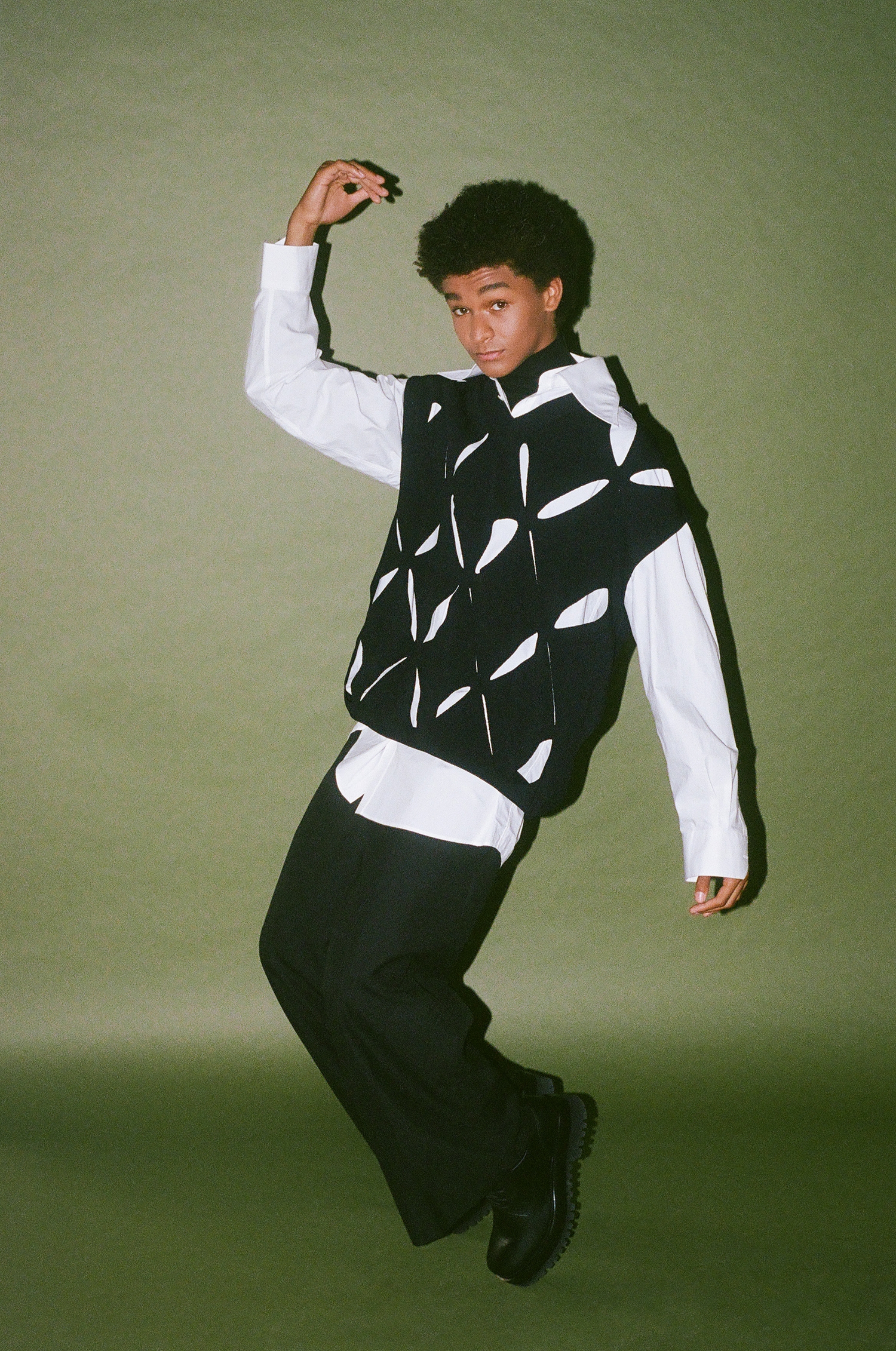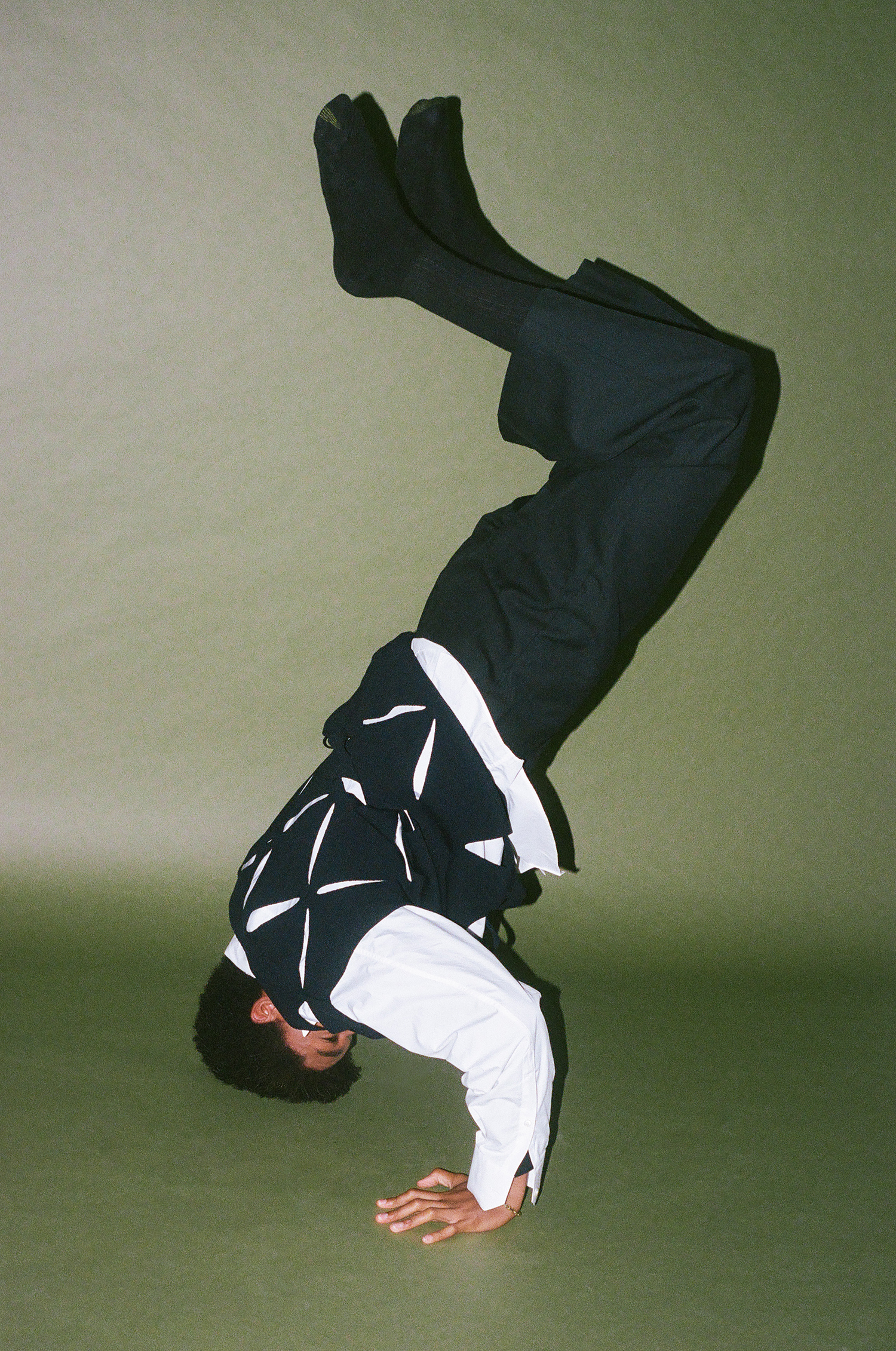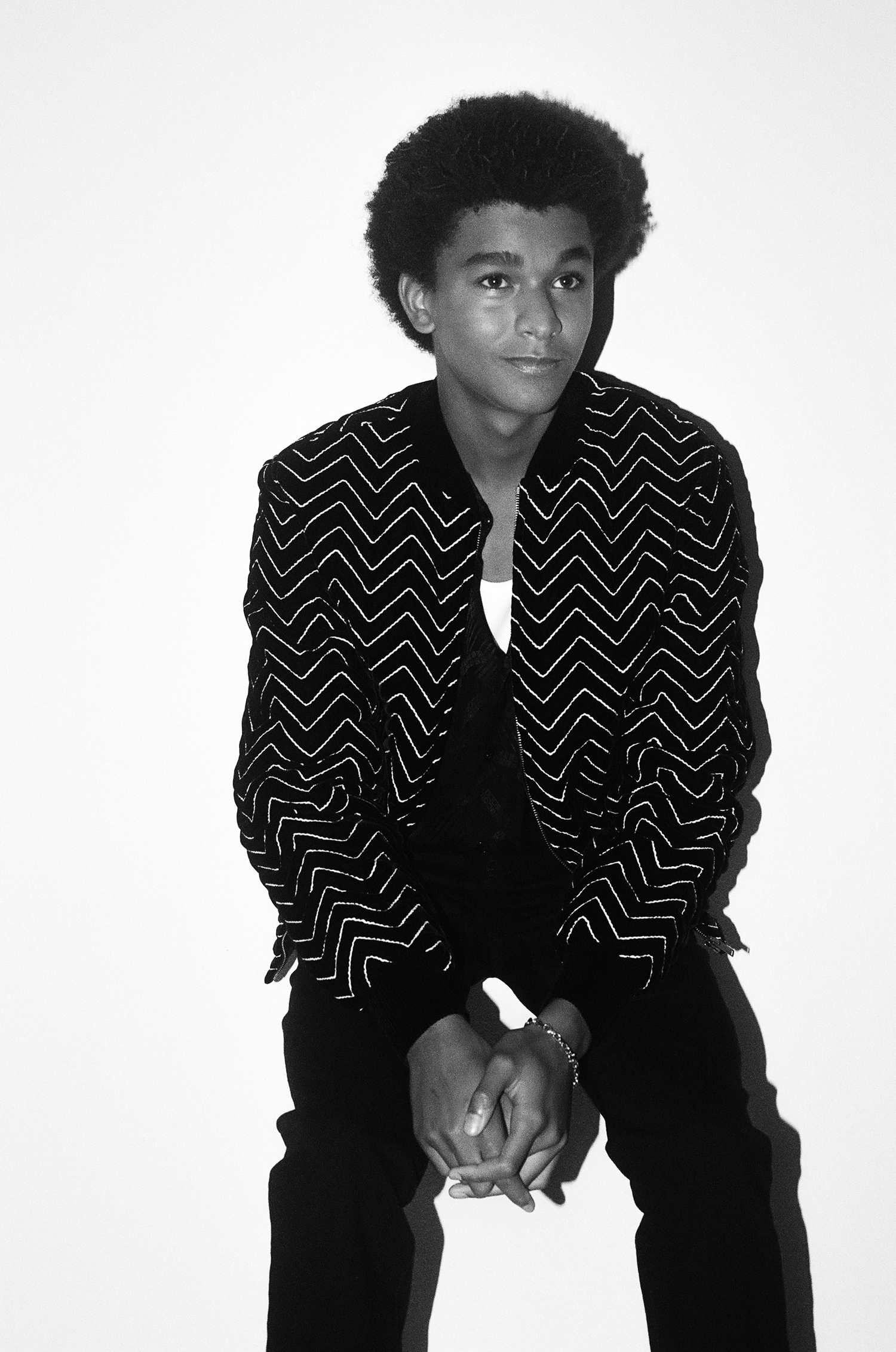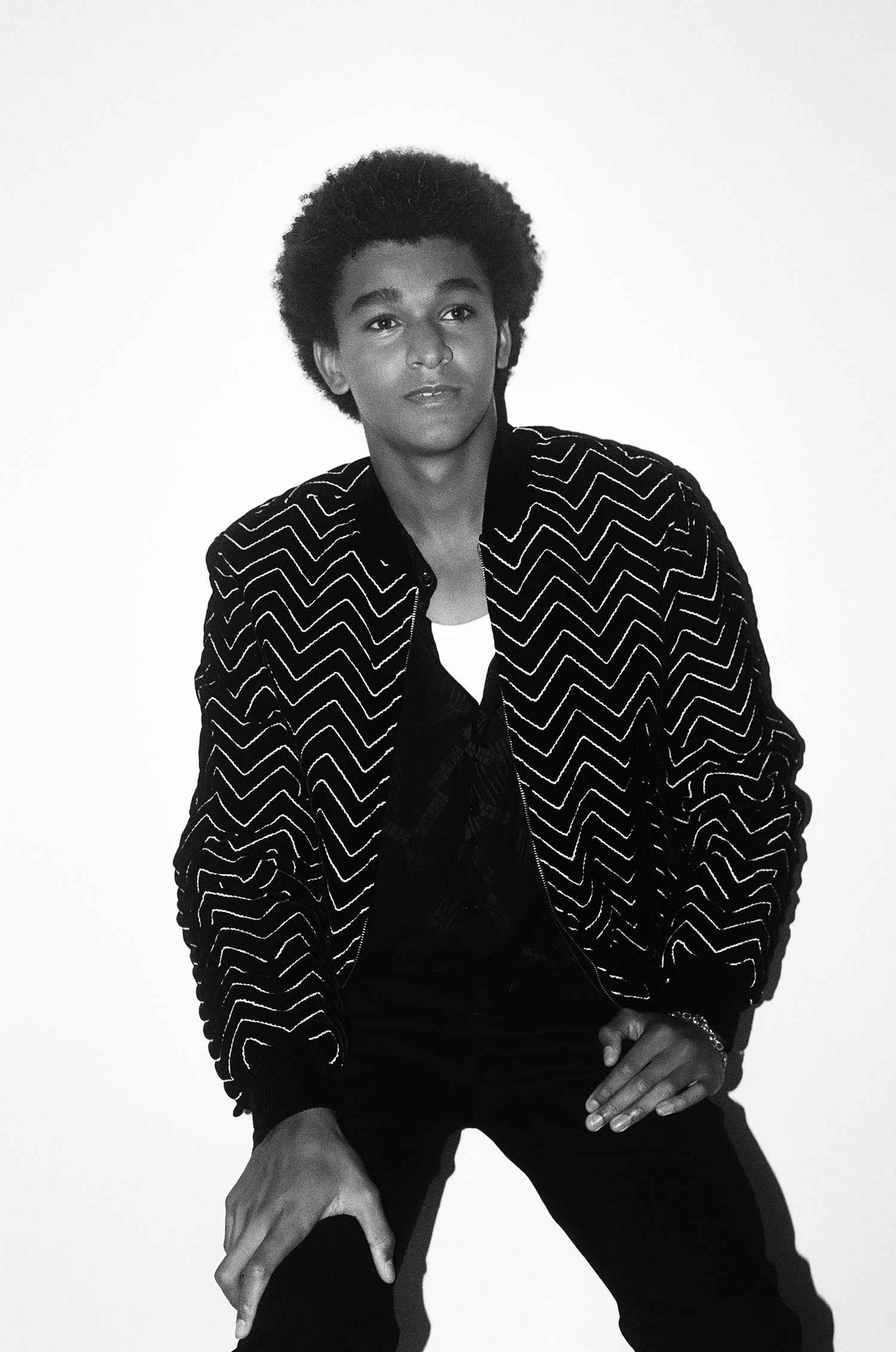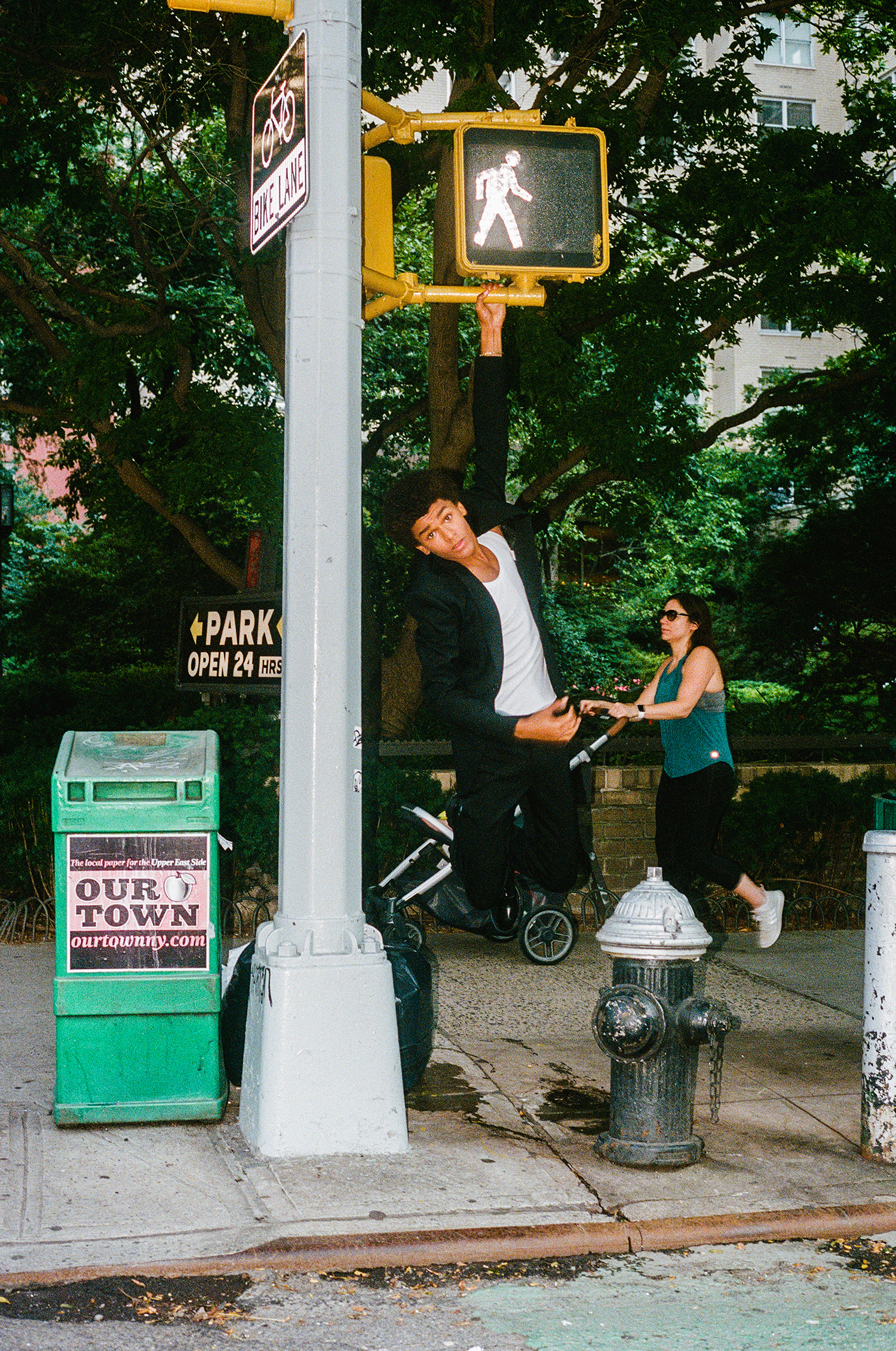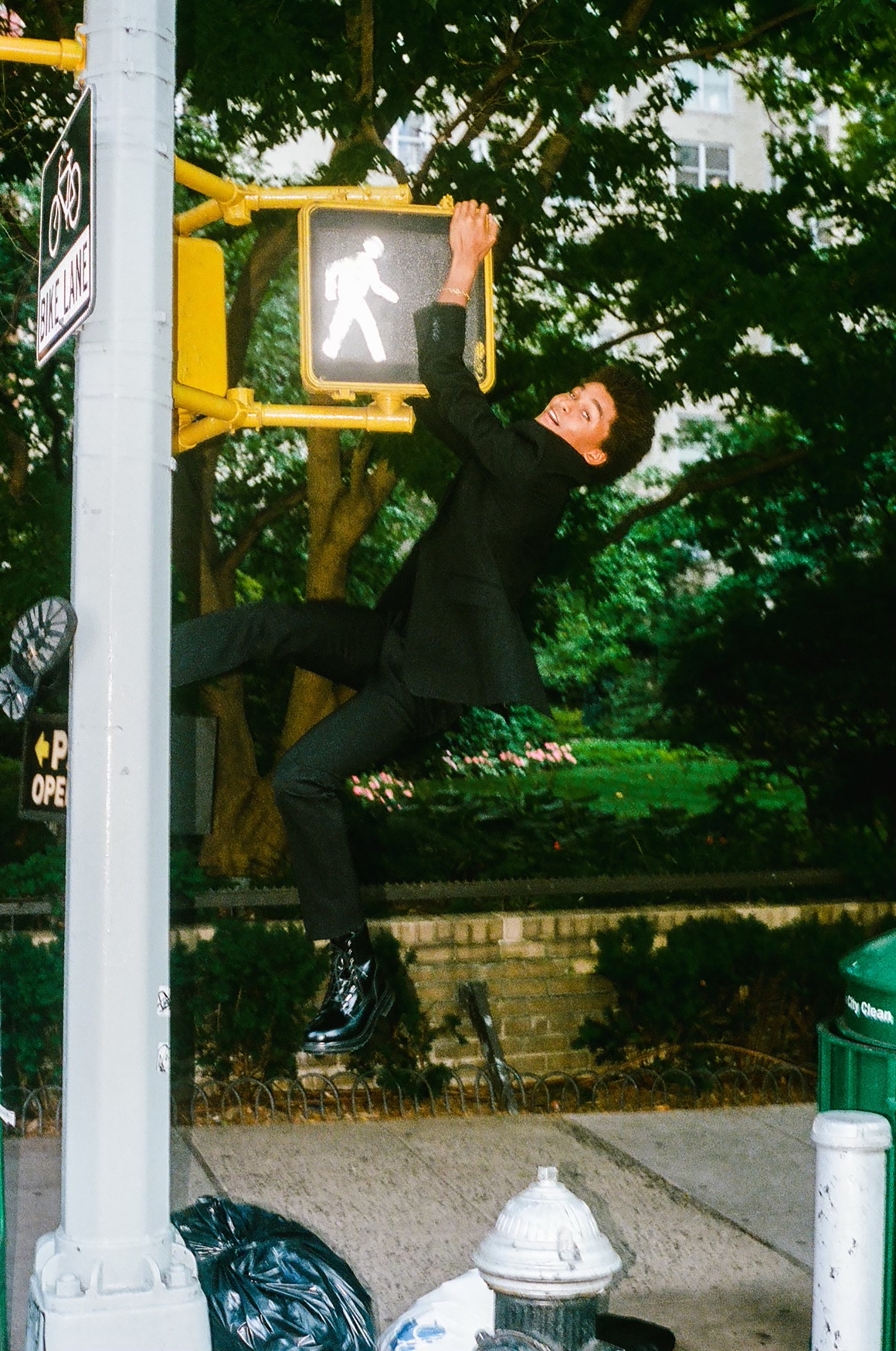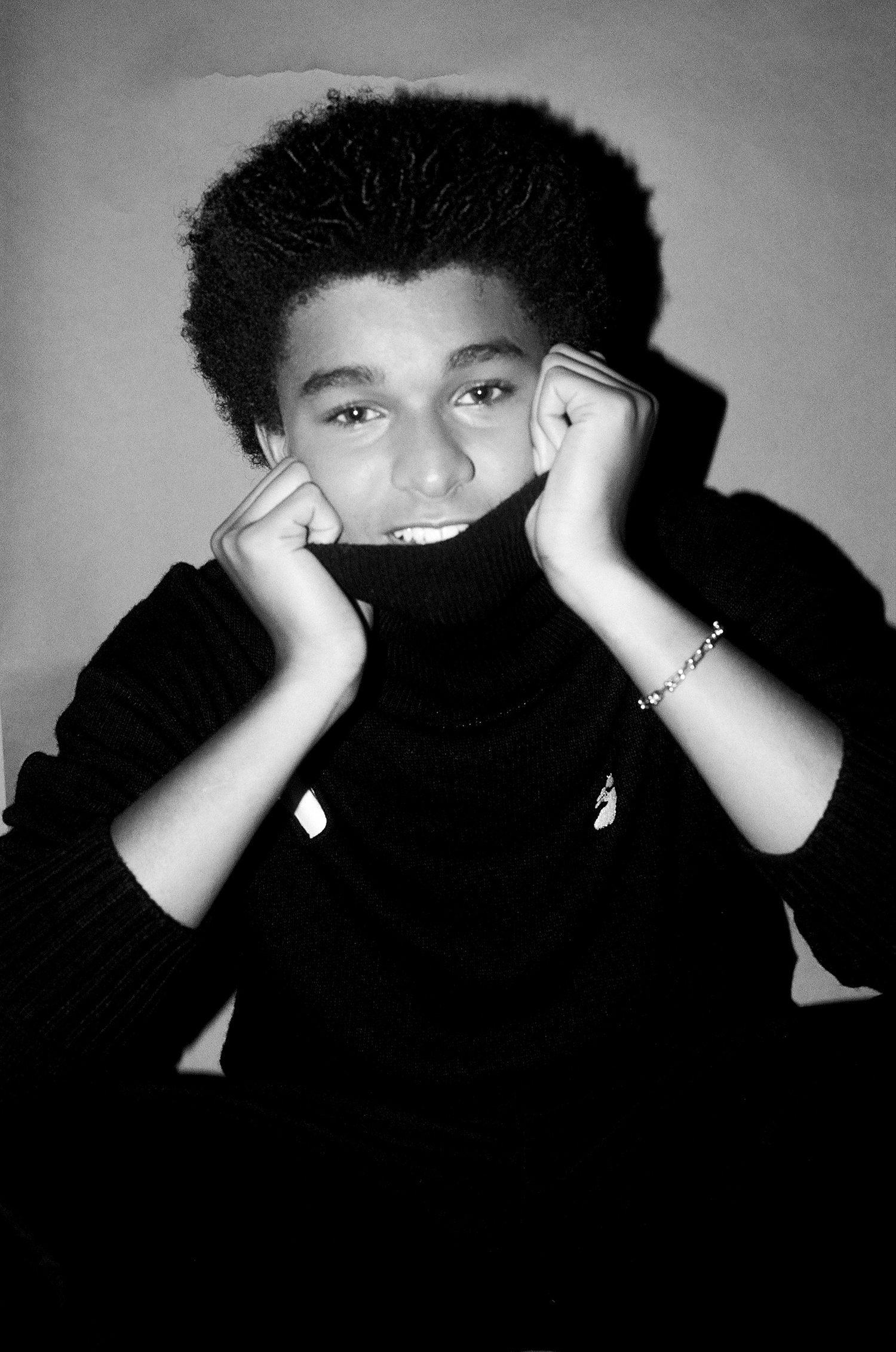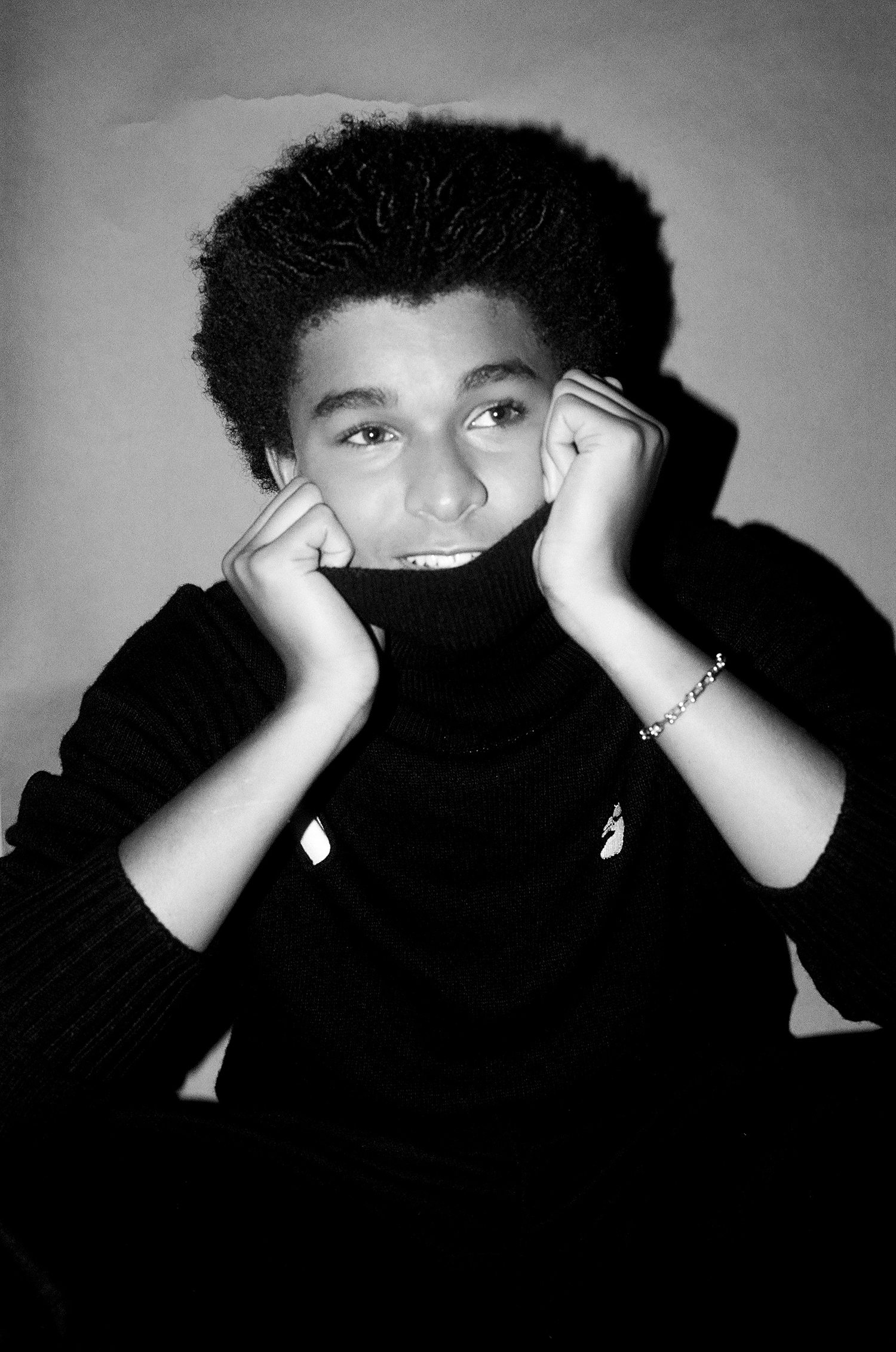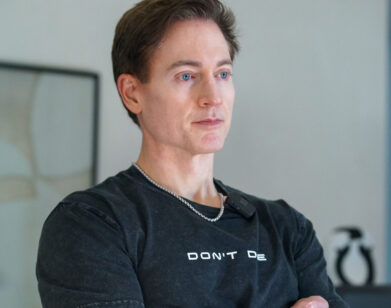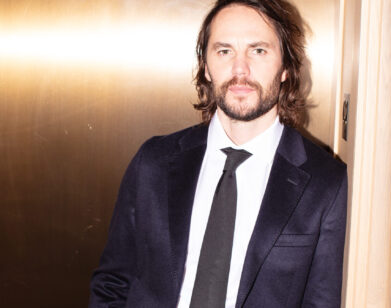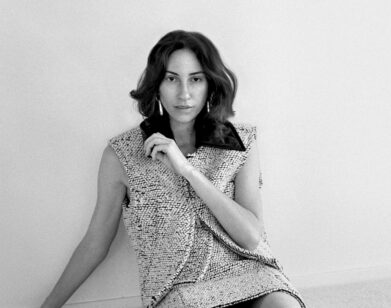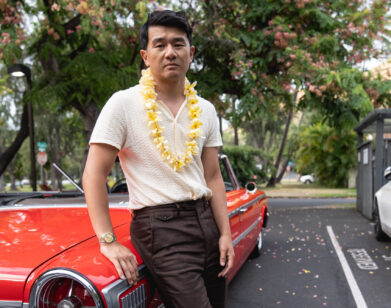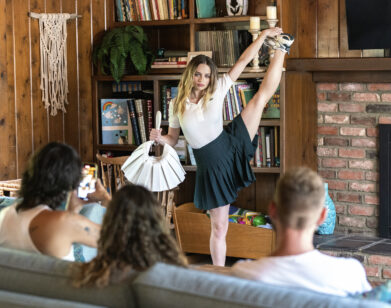Fantasy Football
Jaden Michael on Playing a Young Colin Kaepernick
The search to find a young Colin Kaepernick on the Netflix limited series Colin in Black & White ended when Jaden Michael was chosen by series co-creator Ava DuVernay and none other than the former NFL quarterback himself. The task? To show the world the decisive experiences that shaped a gifted, mixed-race high school athlete into an NFL superstar and, eventually, a generational activist. But first things first: how to throw a football.
———
BARNA: How did the project come to you? Did you go into a room with somebody, or was it strictly self-tapes and Zooms?
MICHAEL: It was like any other audition. We were in the middle of quarantine and there was no in-person auditions, so I did a self-tape for Colin’s role. The first time I went out of my house during quarantine was to shoot a physicality audition because they wanted to see each actor’s ability to throw a football. I never played team sports as a kid, so I asked my uncles and friends in the neighborhood to teach me how to throw a football.
BARNA: Take me through that process. Did you really have no experience at all tossing a football around?
MICHAEL: I didn’t know anything about sports. I had known about Colin because of what he stood up for, more than I had known about his relationship with football. When he stood up for the Black Lives Matter Movement and kneeled was when I really became aware of him. I remember they asked me “Okay, so we’ll have someone do the football scenes for you. And if you want, we can have someone do the sport scenes for you” and I was like, absolutely not. I wanted to learn football because, for me, being physical in the character helps you find the emotion as well. So, I asked if I could get a trainer. We would practice three times a week for baseball, and I would play pickup games of basketball and watch people play football. I basically was learning 17 years of three different sports in three months. It was definitely an eye opener.
BARNA: Are you super good now at all this stuff?
MICHAEL: Colin told me, “You were pretty good.” I remember we had some agility tests to shoot on camera and they had someone ready to do the agility tests in case I couldn’t do it. We got the same exact time.
BARNA: Let’s talk about Colin. I wanted to ask you about the first time you met him. He has this aura to him because of what he stands for and what he sacrificed. Were you intimidated at first?
MICHAEL: Part of the auditioning process was having a conversation with Colin. I had to get his stamp of approval. I had a zoom meeting with Colin and we spoke for an hour and a half about music, movies, pop culture — specifically from the 2000s. We also spoke about some more complicated topics. We spoke about being Black in America and facing different kinds of challenges, specifically as a Black teenager. While I did get to learn a lot about him through the conversation, I feel like I learned so much more about myself just by talking to him, hearing him talk about his childhood, how he took the challenges that he faced and how it built the person who we all love today. The second time I met him was in person. They were warning me, “Oh, you’re going to meet Colin today. We’re going to get it on tape.” I got really anxious and nervous. My feet are tapping and I’m drinking gallons of water. I’m thinking about everything that could possibly go wrong. The cameras came towards my face and I’m about to meet my idol. And he was just like, “Hey, what’s up Jaden. How are you?”. The stress just disappeared. I remember he told me, “Don’t forget about me when you get big,” and I was like, “Huh?”. I didn’t really understand that.
BARNA: In terms of the research that you did, were you going down a Colin Kaepernick YouTube rabbit hole where you watch hours of video footage of his press conferences?
MICHAEL: The YouTube algorithm blessed me. I downloaded so many YouTube videos of Colin talking, and any time I was feeling uneasy, I would put one of his interviews on and listen to how he used to speak. It used to calm me down, but it also got me in character.
BARNA: You’ve worked with Netflix in the past. Not to say that those projects are lesser than this one, but was there something different, maybe more personal, about getting this role and getting cast in this project?
MICHAEL: It was beautiful to even be considered. I had played lead roles in the past and they definitely prepared me for the challenges at hand. But I’d never been a lead for six months, having to keep the character alive and fresh and new every day.
BARNA:What is the tone of the show?
MICHAEL: It’s a sort of coming-of-age [story], but we challenge some deeper themes and difficult situations. There are situations that help the audience learn about why Colin is who he is today. I think the tone is somewhere in between a comedy and the drama and the brevity of being a Black teenager and learning to be who you are.
BARNA: You mentioned the early 2000’s is where the show’s set. What are some of the details of that era that struck you while you were filming? When you’re watching the show can you tell that it’s pre-smartphone, pre-social media? Like you said, Napster is still a part of the world, but not the way that it is today.
MICHAEL: I’m a huge lover of music. I listen to a lot of different genres and one of the things I do to get into character and build the characters is to make a playlist, and think about the kind of music they would listen to. Colin and I had a conversation about music, and it was cool to see that we had similar tastes, as far as Digital Underground, Pharcyde and Hieroglyphics, sort of underground West Coast music.
BARNA: Tell me a little bit about you; where you grew up, how you came into acting. What got you to this point?
MICHAEL: My history helped me build Colin in a very authentic way. I grew up in this luxury building in New Jersey; we had a pool, a gym and all the other amenities. I thought that every other kid had a jacuzzi in their house. When I was nine, I moved to a completely different community in Harlem. My heart lives in Harlem, and that’s where I feel most comfortable, but at the time it was definitely an eye-opener. I came to learn a lot about my skin, my person, and about who I am. It all happened very quickly. I think, in that way, I was well prepared for the challenge of Colin’s adoption, the way that he was raised in a white world, and, as he’s becoming a teenager, how he has to face a racist one.
- Turtleneck and Pants by Off-White.
- Turtleneck and Pants by Off-White.
———
Grooming: D’Angelo Thompson using Kevyn Aucoin Beauty and Makeup by Mario
Fashion Assistant: Talia Restrepo and Shaoul Avital

